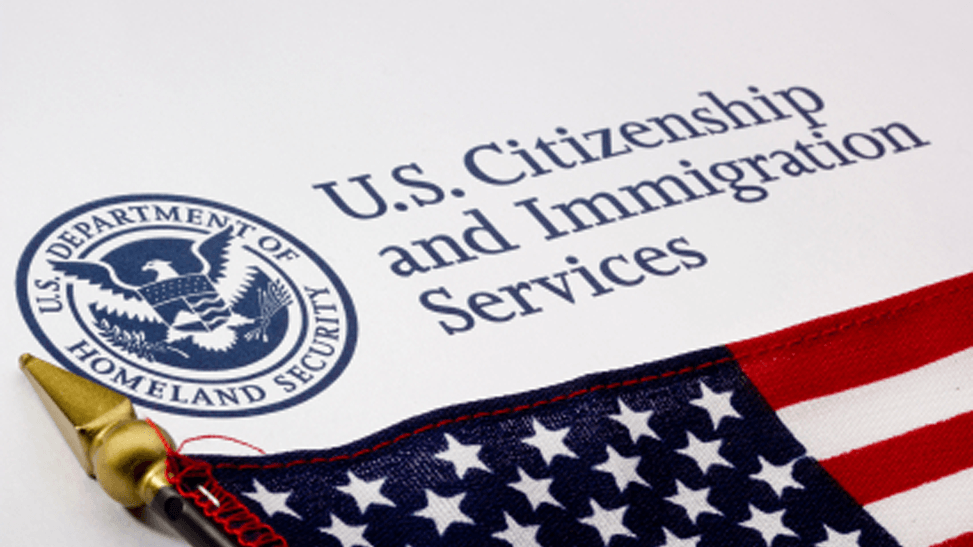Comprendre la nouvelle exigence de l'USCIS en matière d'enregistrement des étrangers : Ce qu'il faut savoir
Click here to read this article in English
En janvier 2025, le gouvernement américain a introduit un mandat exigeant que toutes les personnes sans statut légal dans le pays s'enregistrent auprès des autorités fédérales. Cette initiative vise à renforcer la sécurité nationale et à garantir le respect des lois existantes en matière d'immigration. Si vous ou l'un de vos proches êtes concerné par ce changement, il est essentiel de comprendre les spécificités de cette exigence et la manière de s'y conformer.
Qui est déjà enregistré ?
De nombreuses personnes ont déjà rempli leurs obligations en matière d'enregistrement par le biais d'interactions antérieures avec les autorités américaines chargées de l'immigration. Vous êtes considéré comme enregistré si l'un des documents suivants vous a été délivré:
- Carte de résident permanent légal (carte verte)
- Formulaire I-94 ou I-94W (fiche d'arrivée/départ), même si la période d'admission a expiré.
- Visa d'immigrant ou de non-immigrant délivré avant l'arrivée
- Document d'autorisation de travail (EAD)
- Carte de passage de frontière
En outre, si vous avez demandé la résidence permanente légale en utilisant des formulaires tels que I-485, I-687, I-691, I-698 ou I-700, même si ces demandes ont été rejetées, ou si vous avez été libéré sur parole aux États-Unis en vertu de l'INA 212(d)(5), vous avez satisfait à l'obligation d'enregistrement.
Qui doit s'inscrire maintenant ?
Si vous n'avez pas été enregistré par l'un des moyens mentionnés ci-dessus, vous êtes tenu de vous enregistrer en vertu du nouveau mandat. Il s'agit des personnes suivantes:
- Les personnes âgées de 14 ans ou plus qui n'ont pas été enregistrées et dont les empreintes digitales n'ont pas été relevées lors de la demande de visa et qui sont restées aux États-Unis pendant 30 jours ou plus. Ils doivent déposer leur demande avant l'expiration de ces 30 jours.
- Les parents ou tuteurs légaux d'enfants de moins de 14 ans qui n'ont pas été enregistrés et qui sont restés aux États-Unis pendant 30 jours ou plus. Ils doivent inscrire leurs enfants avant l'expiration de la période de 30 jours.
- Toute personne qui atteint l'âge de 14 ans aux États-Unis et qui a déjà été enregistrée. Elle doit demander un réenregistrement et la prise de ses empreintes digitales dans les 30 jours suivant son 14e anniversaire.
En particulier, les Amérindiens nés au Canada qui sont entrés aux États-Unis en vertu de l'article 289 de l'INA et les membres de la bande des Indiens Kickapoo du Texas qui sont entrés en vertu de la loi sur la bande des Kickapoo du Texas sont exemptés de cette exigence.
Comment s'enregistrer
Les services américains de la citoyenneté et de l'immigration (USCIS) sont en train de mettre au point un nouveau formulaire et une nouvelle procédure d'enregistrement. À partir du
25 février 2025, les personnes tenues de s'enregistrer devront créer un compte en ligne auprès de l'USCIS en vue de la procédure d'enregistrement. Une fois la procédure mise en œuvre, les enregistrements seront soumis par l'intermédiaire de ce compte en ligne.
Considérations importantes
- L'enregistrement n'est pas un statut d'immigration : Le fait de s'inscrire ne confère pas de statut d'immigrant, d'autorisation d'emploi ou d'autres droits ou avantages en vertu de la législation américaine.
- Conséquences de la non-conformité : Le non-respect de l'obligation d'enregistrement peut entraîner des amendes, une peine d'emprisonnement ou les deux.
Chez Santos Lloyd Law Firm, P.C., nous nous engageons à vous guider tout au long de ce processus avec compassion et expertise. Pour obtenir des conseils et un soutien personnalisés, veuillez contacter Santos Lloyd Law Firm, P.C., et vous entretenir avec l'un de nos avocats expérimentés en droit de l'immigration. Nous nous engageons à vous aider à faire face à ces changements et à vous assurer un avenir plein d'espoir.
Ce blog n'est pas destiné à fournir des conseils juridiques et rien ici ne doit être interprété comme établissant une relation avocat-client. Veuillez prendre rendez-vous avec un avocat spécialisé en droit de l'immigration avant d'agir sur la base de toute information lue ici.





